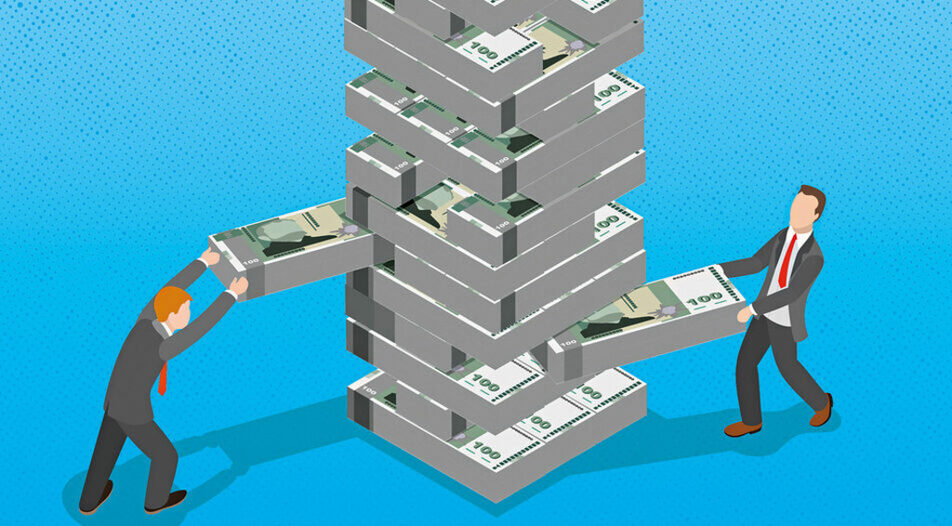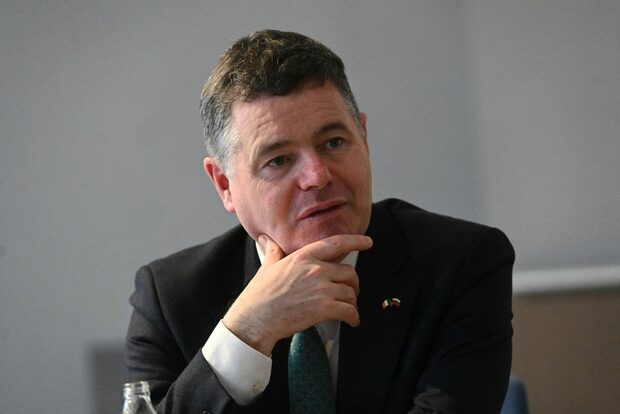- The caretaker cabinet unveiled shocking expectations for high deficit and debt bills in the 2023 budget
- However, it will not submit a financial plan for next year, proposing a continuation of the 2022 budget instead
- Even if politicians want to continue with their generosity, they will hardly find a way to finance it
As expected, the state's finances are in the red with a deficit of 20 million levs in the first ten months of 2022. According to preliminary data from the finance ministry, the deficit in the budget was one billion levs in October, mainly due to increased pension costs and larger VAT refunds to businesses. The 2022 budget is planned with a cash deficit of 6.2 billion levs (3.1 billion euro). Caretaker finance minister Rositsa Velkova has said that the expectations are for the year to end with a budget shortfall of 5.8 billion levs, equivalent to 3.6% of the projected GDP.
The most shocking news was the scenario expected by the finance ministry for 2023: a budget with a deficit of 11.6 billion levs, or 6.6% of GDP, and a need for nearly 16 billion levs in new debt. However, the caretaker cabinet will not propose its financial plan for 2023 as "it should not make politics". Instead, caretaker prime minister Galab Donev proposed to parliament to extend the provisions of the 2022 budget into next year. The draft of the so-called budget extension law provides for the state to fit into the monthly expenses corresponding to those made in the corresponding month of 2022 until a financial plan for next year is adopted by an elected government and approved by parliament.
Until recently, Bulgaria was the antithesis of Romania: an excellent fiscal student with the prospect to join the eurozone very soon. In the last two and a half years, however, the frequent change of governments has set the parliament in a permanent pre-election mode. Logically, this led to populism expressed by a significant increase in pensions, wage growth in the public sector, and new tax breaks. Of course, increased expenditure created a budget deficit larger than originally planned, which was not a problem for some time thanks to economic growth and high inflation. However, the results of the latest auctions of government securities showed that the free lunch is over. And it also means that the government has to limit inflationary spending next year - something which most of the Eurozone countries will also do.
More of the same
The caretaker cabinet's proposal is for the monthly budget spending next year to mirror the expenditure made in the corresponding month of 2022, adding to them the new obligations approved by parliament. This means the state will continue to move by inertia and pay the already accepted increase in pensions and public sector wages. But 2023 will also start with an unchanged minimum wage of 710 levs. The social insurance thresholds will also remain at this year's levels.
According to the general opinion, proposing a budget with a deficit twice as high as the shortfall projected for 2022, is impossible. "We cannot afford such a deficit, because the market will refuse to finance us. The debt markets will ignore us, as this happened in 2009. We will feel this during the first auction in January. Because, paradoxically, everyone wants to give us loans when we don't need them," says Lachezar Bogdanov, Chief Economist at the Institute of Market Economics.
According to a bank analyst, who spoke on condition of anonymity to discuss the matter, deficits of 11-12 billion levs cannot be financed at the current or expected market interest rates. "Until now (2020-2021), the budget spent 0.5-0.6% of GDP on interest expenses on existing debt. At the current rate of debt accumulation, and at high interest rates, we will pay 2% of GDP per year as interest in 2025-2026. In my rough calculations, this is when we will end our fiscal stability and start learning Greek", he told the Capital Weekly.
However, according to most economists, there are hidden reserves in the accounts of the finance ministry. "The big problem is the capital expenditure. It is hardly possible to spend 11.5 billion levs, given that there was no such level of absorption in the previous years," says Kaloyan Staykov, Chief Economist at the Energy Management Institute.
Even if we assume that the caretaker cabinet has been cautious with its assumptions, this is not necessarily reprehensible. Expectations for economic growth of 1.6% fit the consensus forecasts, but for example, the central bank recently predicted a symbolic growth rate of 0.1% in addition to risks that could lead to contraction. And the memories of the last major crisis in 2009, when the economy sank sharply despite the budgeted solid growth, can be a lesson.
For now, it seems that President Rumen Radev does not want to be the bad guy and does not want the government he has appointed to introduce a budget that cuts someone's revenue.
- The caretaker cabinet unveiled shocking expectations for high deficit and debt bills in the 2023 budget
- However, it will not submit a financial plan for next year, proposing a continuation of the 2022 budget instead
- Even if politicians want to continue with their generosity, they will hardly find a way to finance it
As expected, the state's finances are in the red with a deficit of 20 million levs in the first ten months of 2022. According to preliminary data from the finance ministry, the deficit in the budget was one billion levs in October, mainly due to increased pension costs and larger VAT refunds to businesses. The 2022 budget is planned with a cash deficit of 6.2 billion levs (3.1 billion euro). Caretaker finance minister Rositsa Velkova has said that the expectations are for the year to end with a budget shortfall of 5.8 billion levs, equivalent to 3.6% of the projected GDP.












